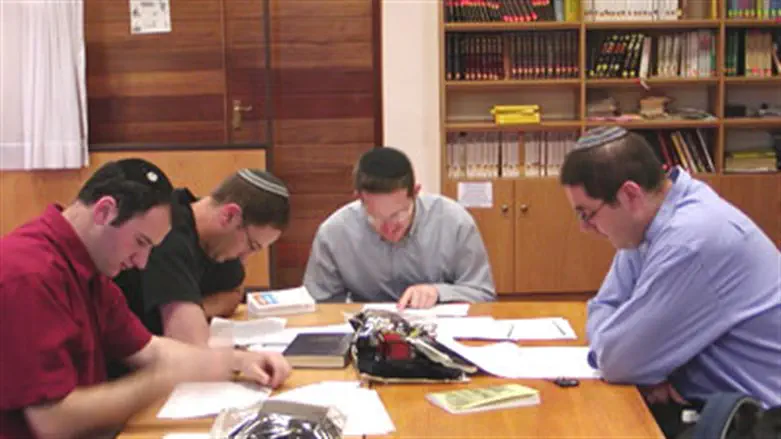
Dedicated in memory of Yaakov ben Avraham and Sarah Aharonov z"l
Yaakov’s final message to Gad addressed the military future of his descendants. As Radak and Ramban read Bereishit 49:19, Yaakov said, “Gad, troops will attack him; may he attack them in the end.”
But when did this war take place?
Commentators identify five different wars of Gad:
1) Wars under Yehoshua (Yehoshua 4:12-13)
2) A battle against Amon (Shoftim 11, as explained in Ramban to Bereishit 49:19)
3) Fighting beside the fugitive King David in Tziklag (Divrei haYamim I 12:9)
4) Fighting the descendants of Hagar during the time of King Shaul (Divrei haYamim I 5:10; and see Bereishit Rabbah 98:15)
5) Fighting the descendants of Hagar in a second war; they prayed to Hashem and were victorious. (Divrei haYamim I 5:18-22, and see Radak to Bereishit ibid.)
A midrash (Bereishit Rabbah 98:15) places this fifth war in the time of Yehoshua, and says that this was the war about which Yaakov prayed:
When Israel conquered and divided the land, the tribes of Reuven and Gad were with them; they left behind their small children. One who left a ten-year-old child returned to find him at age 24; one who left him at age twenty found him at age 34. Three wicked [Hagarite] families, Yetur, Nafish and Kedmah, attacked [the younger generation], as recorded in Divrei haYamim I 5… These [older Gadites] had grown their hair long and these [younger Gadites] had grown their hair long; these grew their hair long until they would see their children, and these grew their hair long until they would see their fathers. But the Ishmaelites also grew their hair [and so the returning, older Gadites could not discern the younger Gadites from Hagarites in the battle].
Hashem influenced the children’s hearts, and they said, ‘Answer us, Hashem, answer us! G-d of Avraham, G-d of Yitzchak, G-d of Israel, answer us!’ Thus it says, ‘And they were assisted over them, and the descendants of Hagar… were put into their hands.’ In what merit? Rabbi Levi and the Sages debated. The Sages said it was from Yaakov’s blessing, etc.
This midrash adds a spiritual dimension to the war with Hagar’s descendants. The Transjordan family of Gad had come to resemble their Ishmaelite neighbours, as represented by the hair in this midrash, and they were saved when their prayer distinguished themselves from those Ishmaelite neighbours.
Yaakov’s intervention was not only a prayer for military success, but also a prayer for his children to retain and display loyalty to Hashem.
This midrash points to a challenge for the modern descendants of Reuven, Gad and part of Menasheh, living apart from our Israeli brethren. Those who choose to live beyond the Yarden are not only physically vulnerable, but spiritually vulnerable.
May Yaakov’s prayer for Gad extend to include the spiritual descendants of Gad in exile, such that we will retain our identity and so emerge victorious.
Rabbi Mordechai Torczyner is Rosh Beit Midrash, Beit Midrash Zichron Dov of TorontoFor Comments- torczyner@gmail.com\\
Torah MiTzion stands in the forefront of the battle for the future of the Jewish people in the Diaspora, offering religious-Zionist Torah scholarship to Jewish communities throughout the world and strengthening the bond between the Jewish people in the Diaspora and in Israel via the study of Torah.
